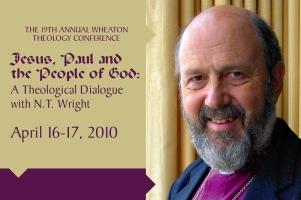In an upcoming paper I'll present to my peers I will give both a broad encapsulation of my dissertation topic and a detailed analysis of one of the exegetical moves Karl Barth makes in the late stages of his Doctrine of Reconciliation. There he takes as a unifying factor in the active life of the Christian community the notoriously difficult "binding and loosing" passages of Matthew 16:19 and 18:18. Interesting passages to me on many levels. In my finite preaching career I've already preached on them at least three times.
Whereas in history these verses have been interpreted to sanction everything from papal authority to church discipline regiments to the authority of the individual in biblical interpretation, Barth makes an interesting (and debatable) move with them by reading them in light of John 20:23---which essentially (not to mention provocatively) translates:
"If you forgive anyone's sins, they are forgiven; if you do not forgive them, they are not."
He then interprets binding and loosing not as two contextually discerned potentially feasible alternatives but as one negative, Pharisaical, option (binding) and another positive, truly Christian, option (loosing). Though his exegesis here has been flagged as suspect, as I have begun tackling it this week I have not found Barth's interpretive move entirely as incredible or unwarranted as I expected. Though I think his overall theological argument stands canonical scrutiny, I thought I'd find his use of these particular texts exegetically untenable. Good sermon, wrong text---that sort of thing.
This may still prove to be my conclusion. Nonetheless, as I searched other literature today I found that Barth's take on these verses is not quite as unique as I thought. In HR Mackintosh's 1927 study of The Christian Experience of Forgiveness I found not only a similar view of the above verses but a compelling account of the sort of conclusions I could see myself coming to in the outworking of my own Barthian project. Referring to John 20:23, Mackintosh writes:
“Conceivably this is a late allusion to what came to be known as ‘the power of the keys’, a notion which afterwards blossomed or faded into the belief that the Church as an hierarchical institution has authority to admit to or exclude from the benefits of salvation, in this life and the next.
And to that as it stands grave objections, presumably, could be raised.
But is there no truth behind, to which experience bears witness? If a Christian has fallen into scandalous sin, does it not in fact, to an extent we dare not limit or define, depend on the attitude held towards him by his fellow-believers, that is by the Church, whether the realised peace of reconciliation with God will ever again be his? If in judgment they are merciless, if they draw away their skirts from the pollution of his touch, how can he again open his heart spontaneously to the compassion of the Father?
If he finds none here who can give and receive freely the blessed experience of reconciliation, with its incalculable power to neutralise and transcend the past, will he soon believe that the Lord of heaven and earth can pardon and restore the soul? Or is it not only too likely that the pitilessness of man will hide the pity of God?
Even if under these harsh conditions he should attain to something like faith in Divine absolution, it is all but certain that contact with men who can only be softened and appeased by a variety of penances and satisfactions (though they may not be called so) will also infect his thought of God, and of the terms on which He too will grant peace.
On the other hand, it is difficult to assign limits to the renewing tenderness and power with which the Father’s absolving love may flow into his heart, if his fellows have frankly forgiven him and taken him into confidence again. Thus, from a new angle, we may see how the Church has much—all but everything—to do with what the forgiveness of sins may mean for the guilty.
Or again, it is agreed by all that a vital condition of receiving Divine pardon is the lowly heart. . . . But lowliness is not relative to God merely. It is an attitude bearing on those with whom our life is shared. Now, the experience of receiving God’s pardon involves the consciousness that we form part of a pardoned company; it means that we are content to share and share alike with them, for in the Kingdom of God none can be saved in isolation” (283-284, emphases and layout mine).





